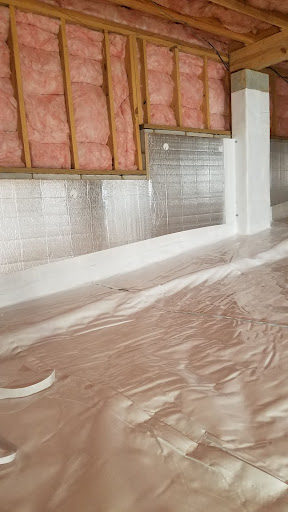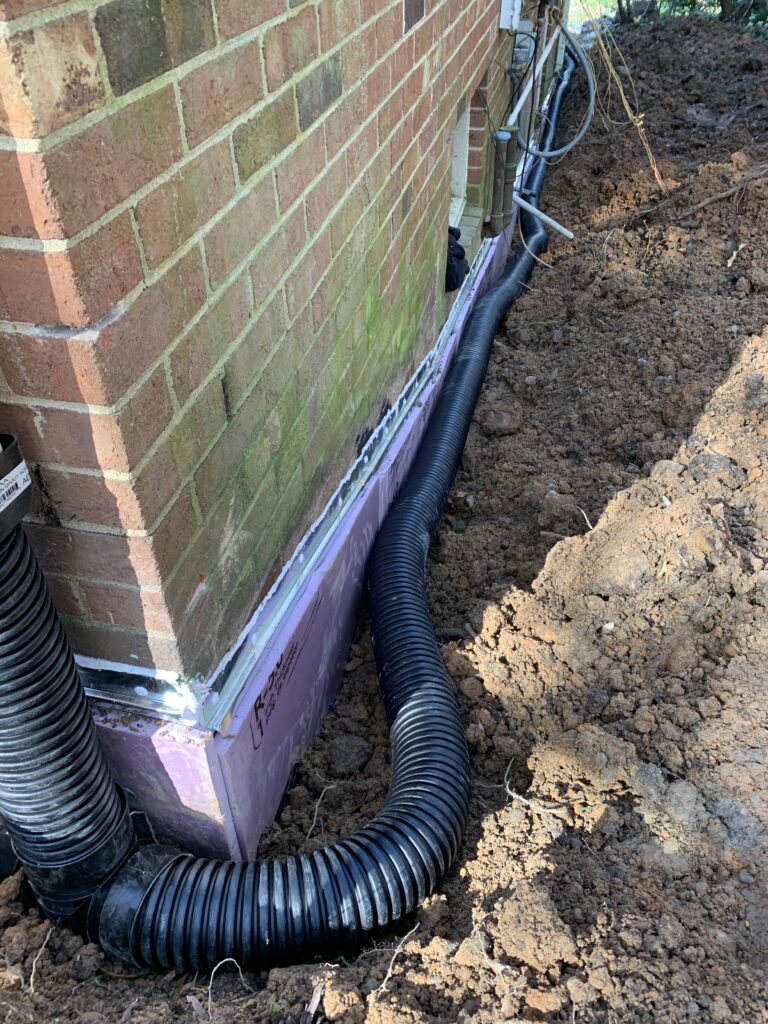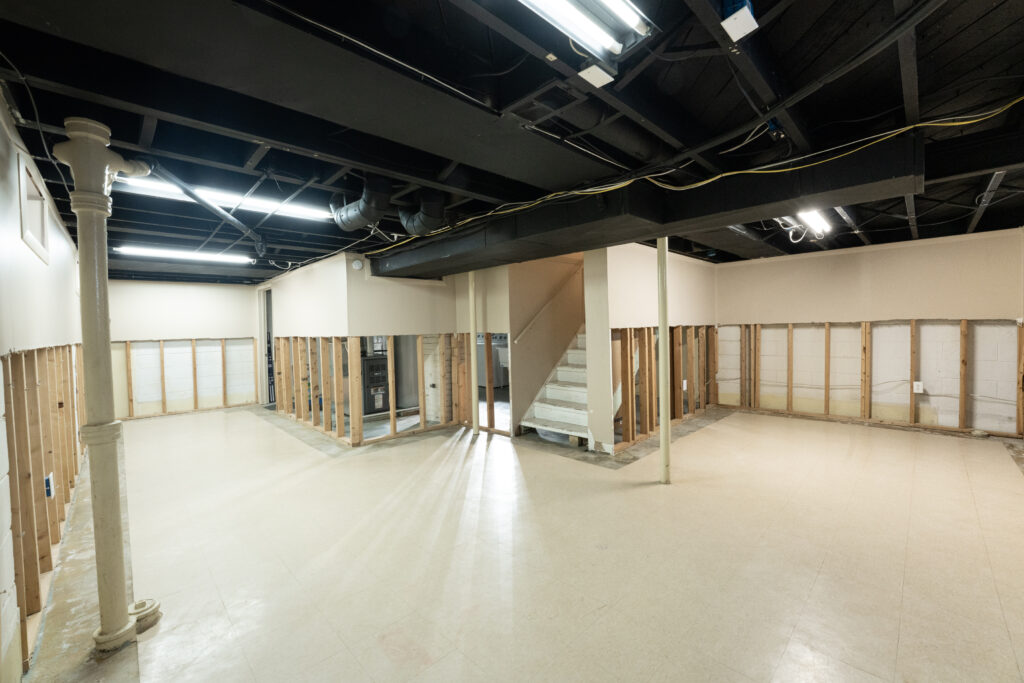The rainy season is upon us, and if you have a basement, now is the time to make sure it’s waterproof. Basement waterproofing can help protect your home from water damage and mold growth due to excessive moisture in the air. It also helps prevent flooding, which can cause major structural damage to your home. We’ll discuss why it’s important to get your basement waterproofed and what the process entails.

Waterproofing System
The typical basement waterproofing system includes a sump pump, which removes excess water from the basement and pumps it away from the house; a drainage system to channel incoming water away from your home; and a sealant, such as tar or mastic, that prevents seepage. A good waterproofing job will also include an interior moisture barrier, such as a sheet of plastic, to keep moisture out of the walls and floors.
Types of Waterproofing Systems
Before installing one, it’s important to know the different types of basement waterproofing systems available. Here are the following:
Interior Waterproofing System
Interior waterproofing is done by applying a waterproof membrane over the entire basement floor and walls. The membrane typically consists of a combination of tar, mastic, and hydraulic cement. These materials are applied in layers to create an impenetrable seal that prevents water from seeping into the basement.
Exterior Waterproofing System
Exterior waterproofing involves taking measures to keep groundwater away from the foundation of the home. This may include installing drainage systems, such as French drains and downspouts, or applying waterproof coatings to the foundation walls.
Materials Used
The materials used to waterproof basement walls vary depending on the type of structure and local climate. For most buildings, a waterproof membrane is typically applied to the outer walls,
followed by a layer of hydraulic cement to ensure that no water can penetrate through any cracks or gaps in the structure. This combination has proven to be highly effective at keeping water out of basements.
Reasons to Get Basement Waterproofing
Protect your home
The most important reason to get your basement waterproofed is that it will protect your home from water damage and mold growth. Water can seep into the walls and floor, causing major structural damage over time. Basement waterproofing will help keep this from happening.

Save Money
The cost of repairing water damage is much higher than the cost of preventing it in the first place. By getting your basement waterproofed, you can save money on costly repairs down the road and avoid having to replace furniture or other items that may be damaged by moisture.
Keep your basement dry.
A waterproofed basement is a dry one. By preventing water from seeping in, you’ll be able to create a comfortable and cozy space for your family to enjoy without the worry of moisture or mold.
Prevent Flooding
If your basement is not waterproofed, it can be at risk for flooding during heavy rains and thunderstorms. Waterproofing will help protect your home from costly flooding damage. Those concrete walls and floors will keep water at bay.
Improved Home Value
Having a waterproofed basement can increase the value of your home. Potential buyers will be more likely to make an offer on a home with a dry and safe basement since they won’t have to worry about problems down the road.
Signs you need basement waterproofing
If you’re not sure if your basement needs waterproofing, there are a few telltale signs to look out for. If you notice any of the following, it’s time to call a professional:
Musty Smell
If your basement has a musty smell, it’s likely due to moisture and mold. This is a sure sign that you need waterproofing.
Water Damage
Water stains on the walls and floor are an obvious sign that water is getting into your basement. You should call a professional right away to get your basement waterproofed.
Cracks in the walls or floor
If you notice any cracks on the walls or floor, they could be letting in water. It’s a good idea to get your basement checked out right away. This could lead to leaks and water damage down the road.
Dampness
If your basement feels damp and humid, it’s a sign that there’s too much moisture in the air. Basement waterproofing can help reduce this moisture and make your home a more comfortable, livable space.
If you notice any of these signs, it’s important to get your basement waterproofed as soon as possible. It could mean the difference between a safe and dry space and costly repairs down the road.
Waterproofing basement walls is a great way to protect your home from water damage and mold growth. It can also help save money on costly repairs, keep your basement dry, prevent flooding, and even increase the value of your home. If you notice any signs that your basement needs waterproofing, make sure to call a professional right away. Doing so now could save you from bigger issues later.
Frequently Asked Questions

What is the best basement waterproofing method?
The best basement waterproofing method will depend on the type of basement and the situation. Common methods include using a sealant to fill in any cracks or gaps, installing drainage systems, and applying a waterproof membrane over the walls and floors.
How can I waterproof my basement myself?
You can waterproof your basement yourself by filling in any cracks or gaps with a sealant. You should also make sure there is adequate drainage and ventilation, and you can apply a waterproof membrane over the walls and floors.
Is it better to waterproof the basement from the inside or outside?
It’s usually better to waterproof the basement from the inside since this will give you more control over where the water goes. It’s also easier to identify and fix any problems on the inside than it is from the outside. If there are cracks or gaps in the exterior walls, they should be sealed first before attempting to waterproof the interior. This will ensure that water won’t enter through any external sources.
What is the strongest waterproof material?
The strongest waterproof material is usually a polyurethane membrane, which consists of two layers of polyurethane and one layer of reinforcing fabric. This type of waterproofing is highly resistant to water, chemicals, and mold. It’s often used for basement walls and floors as well as roofs.
